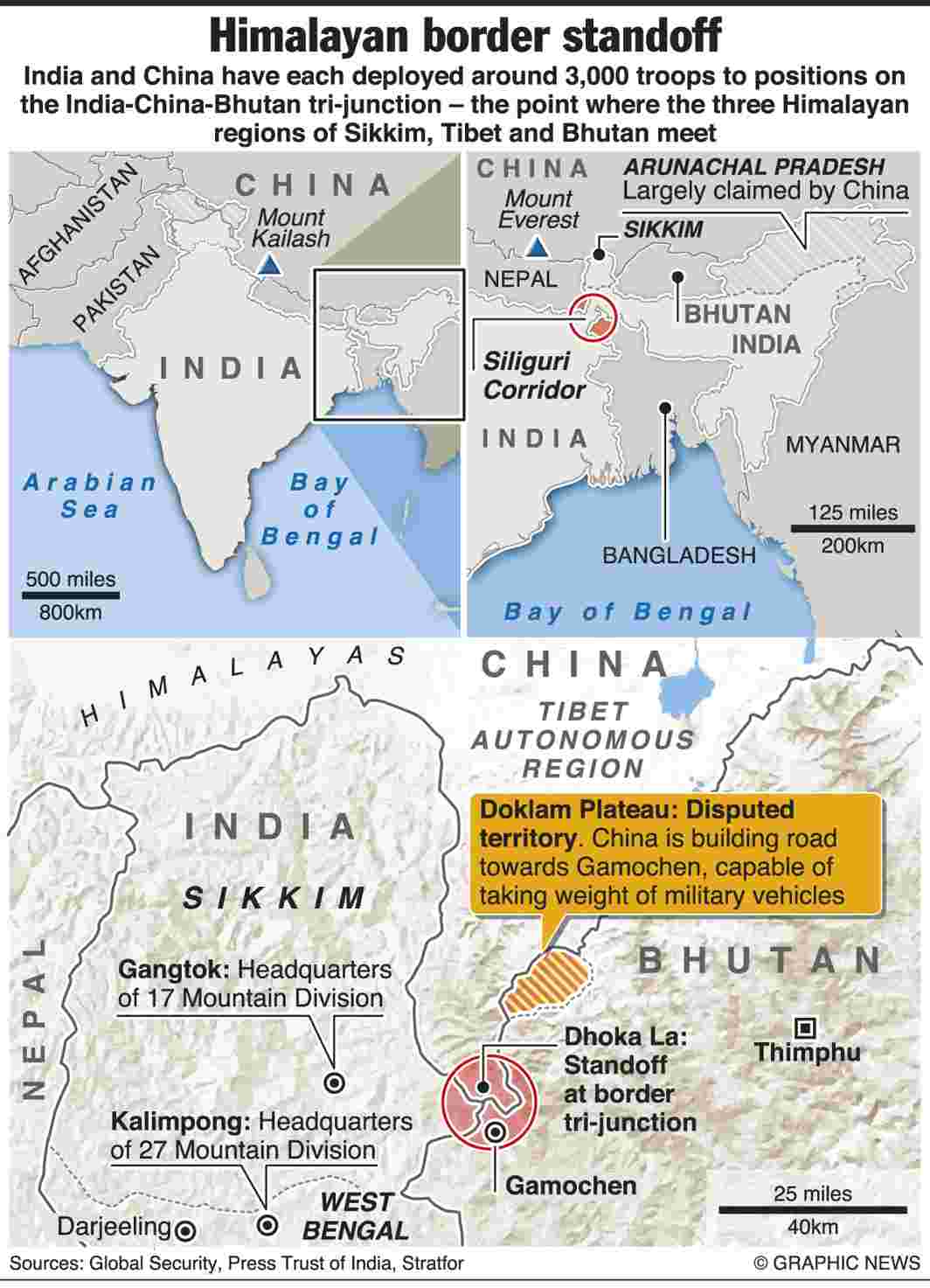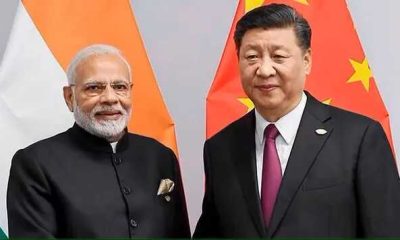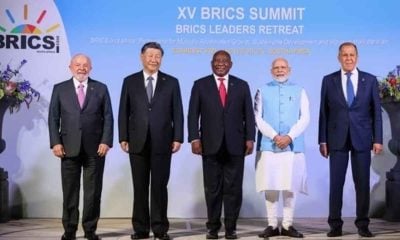[vc_row][vc_column][vc_column_text]China’s Foreign Minister Wang Yi on Tuesday said India has admitted to entering Chinese territory and the Doklam standoff in the Sikkim sector can only reach its logical conclusion if Indian troops ‘conscientiously withdraw’ from the area.
On Monday, spokesman for China’s Defence Ministry had warned India “not to push its luck” and “not harbour any illusions”, saying it was easier to shake a mountain that the PLA (People’s Liberation Army).
After sending out signals mainly through Chinese state-run media for some weeks, in these two days the Chinese government has come out with statements affirming them. Chinese Foreign Minister’s statement on Tuesday was his first comment, also the first by a Chinese minister, in the ongoing standoff between India and China over Doklam.
Wang Yi was quoted by news agency as making a statement to the media in Thailand’s capital Bangkok on Monday, saying: “The rights and wrongs are very clear and even senior Indian officials have openly stated that Chinese troops did not enter into the Indian territory.”
India had said they had entered Bhutan territory at a tri-junction of crucial strategic importance to India.
The brief quote in Chinese, posted on China’s Foreign Ministry’s website, added, “In other words, the Indian side admitted to entering the Chinese territory. The solution to this problem is very simple: conscientiously withdraw.”
The statement, a first by the minister, comes ahead of National Security Adviser Ajit Doval’s visit to Beijing for a BRICS summit, where he is expected to have a one-on-one bilateral meeting with his Chinese counterpart Yang Jiechi on the sidelines.
The editorial in China’s state-run Global Times, said India should not entertain high hopes of any major outcome from Doval’s visit. Describing Doval as “believed to be one of the main schemers behind the current border standoff between Chinese and Indian troops”, it said, “the Indian media is pinning high hopes on the trip to settle the ongoing dispute”.
It said, “…India’s withdrawal from Chinese territory is a precondition and a basis for any meaningful dialogue between the two sides. New Delhi should give up its illusions, and Doval’s Beijing visit is most certainly not an opportunity to settle the standoff in accordance with India’s will.”
It said the BRICS National Security Advisers’ meeting “is not a platform to address Sino-Indian border skirmishes”.
“Doval will inevitably be disappointed if he attempts to bargain with Beijing over the border disputes,” asserted the article.
Ruling out any accommodation or meeting India half-way, it said, “Indian media outlets are exploring “dignified” ways to pull back its troops. We believe that if India complies with international laws, then the withdrawal will display dignity.”
“Beijing has no obligation to coordinate with New Delhi to withdraw its troops or suspend its road construction,” it added.
It went on to indulge in some sabre rattling: “People’s Liberation Army (PLA) forces are being deployed to the border area, and will take effective countermeasures if India refuses to pull back voluntarily. The PLA is capable enough to take actions that neither Indian troops nor the government can afford.”
It said India’s voluntary withdrawal “will incur the least cost” to it. “If Beijing takes countermeasures, New Delhi will be mired in a more passive political and military situation, and face its most serious strategic setback since 1962,” said the Global Times editorial.
An opinion piece in the newspaper struck an even more strident note, talking of “teaching India a second lesson”. It said: “As India continues down this intransigent path, perhaps it is time that it be taught a second lesson.” Recalling a statement made by China’s former consul general in Mumbai, Liu Youfa, the writer said India’s troops in Doklam “could either withdraw voluntarily, be captured or may be killed when border disputes escalate”.
Chinese and Indian soldiers have been locked in a face- off in the Dokalam area of the Sikkim sector for over a month after Indian troops stopped the Chinese army from building a road in the disputed area. China claimed that they were constructing the road within their territory and has been demanding immediate pull-out of the Indian troops from the disputed Dokalam plateau. New Delhi has expressed concern over the road building, apprehending that it may put Chinese troops in a position to cut India’s access to its northeastern states.
India has conveyed to the Chinese government that the road construction would represent a significant change of status quo with serious security implications for it.[/vc_column_text][/vc_column][/vc_row]


 Latest world news14 hours ago
Latest world news14 hours ago
 Latest world news14 hours ago
Latest world news14 hours ago
 Latest world news13 hours ago
Latest world news13 hours ago
 India News14 hours ago
India News14 hours ago
 India News5 hours ago
India News5 hours ago
 Latest world news4 hours ago
Latest world news4 hours ago











